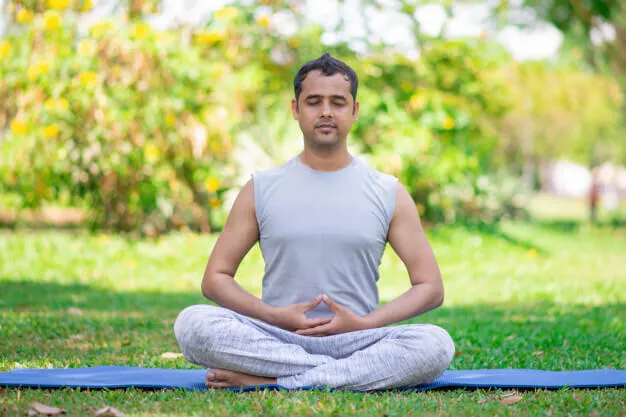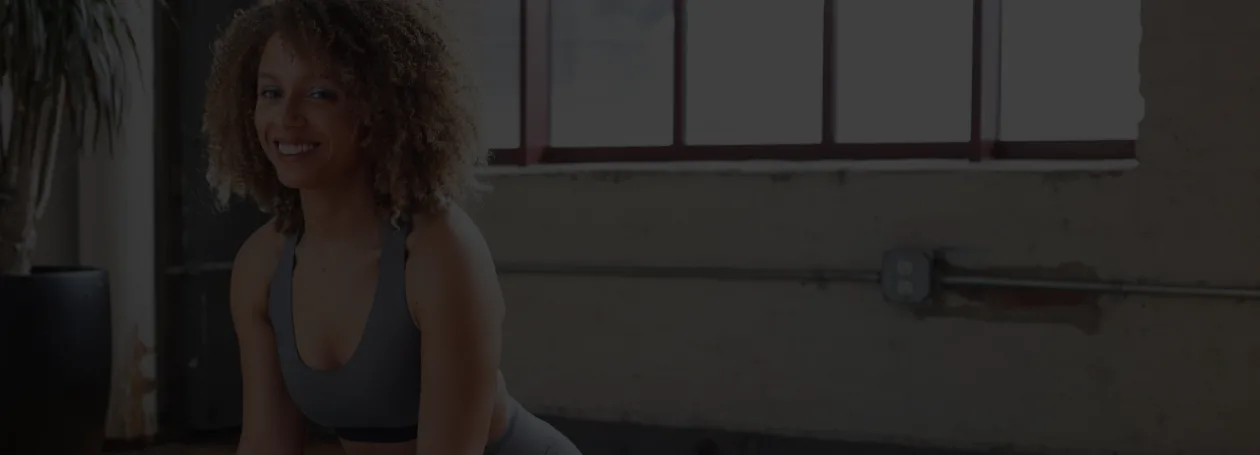

We all want that experience that experienced meditators talk about.
That magical time when you’re totally and completely relaxed and in a sort of euphoric, beautiful state. It’s calm and quiet. You’re centered and grounded.
But it’s not actual magic.
A meditation practice takes...well, practice. It doesn’t come naturally to most people. But the more you do it, the easier it gets, and the more benefit you receive from it.
[CTA-DEFAULT]
A deep meditation is amazing. But here’s what you should know before starting your journey.
It is the brain’s natural state to jump from thought to thought to thought. The purpose of meditation isn’t to create a blank mind but to become more aware of the thoughts you’re having and guide your mind back to your meditation practice.
Many types of meditation actually emphasize the art of being mindful of thoughts as they arise.
While it is often recommended that you sit or lay on the floor or ground, it isn’t necessary. It’s more important to be comfortable and in a place or position that helps you feel grounded.
Of note, unless it’s a sleep meditation or body scan meditation, lying down during your meditation practice might not be your best option. Unless you don’t mind falling asleep!
One of our other instructors discussed this in their article, but we can’t emphasize this enough. Meditation helps reduce stress, blood pressure, anxiety, and depression. It improves sleep, increases feelings of wellbeing and happiness, and boosts the immune system.
A regular meditation practice can even help you kick smoking or alcohol addictions to the curb!
It’s true, meditation is scientifically proven to alter your brain...in a good way!
Studies show that mindfulness practices thicken the prefrontal cortex of the brain which is responsible for things like concentration and awareness. In this case, thicker is a good thing.
Also, meditation is proven to reduce the brain’s fight or flight response. This means your body responds better to stress resulting in lower cortisol levels and better health.
I’m sure you knew Oprah meditates. That is a given.
But did you know that Paul McCartney, Jerry Seinfield, Howard Stern, Barbara Walters, Bill Gates, Michael Jordan, Will Smith and even Clint Eastwood also meditate?!
And they don’t mind letting people know about it either. They understand the power of meditating!
It’s ok.
The first time you meditate may feel awkward, strange, uncomfortable. It may just feel like you’re doing it wrong.
You may feel like this the second or third or even fourth time. Stick with it. Just like your yoga practice or anything else you want to be better at, the more you practice, the better you’ll get.
The better you get, the more benefits you’ll experience.
It’ll be important, especially during the early days of your practice, to take a step back and reflect on how you feel in between practices.
It is not uncommon to feel bored, discouraged, or distracted during or after a meditation session. Hopefully, as you go, you’ll have more times of feeling happy, energized, relaxed and calm. Either way, take note of how your days and weeks go.
You might be surprised how quickly you start to experience the benefits of meditation.
Some people are wary of meditating because they’re uncomfortable with chanting or having a mantra. They just want to be silent.
And that’s totally fine.
Mantras, chanting, and sound are tools many people use to facilitate their meditation practice. But they aren’t necessary to reaping the rewards of one. However, your mind will have a tendency to wander. It’s completely normal. And a mantra, chanting, or even just counting your breaths will help bring your mind back to your practice.
There are many types of meditation, but there are many more ways to practice those different types.
Some people meditate specifically to ease anxiety, depression, or to reduce their stress levels. Maybe they want to become more grateful, kind, or compassionate. There are plenty of specific reasons for one to meditate.
It’s also completely ok to meditate for wellness.
You want to know the truth?
We make time for the things that are important to us. No matter what that is.
Incorporating meditation into your daily life doesn’t have to be overwhelming or time-consuming. Even 5 minutes a day can be beneficial. And you’ll probably find that after a while, 5 minutes a day won’t feel like enough and you’ll be more inclined to carve out more time for an even deeper meditation practice.
If you’re new to meditation, start with shorter increments and see how you feel!
There are many ways to learn how to meditate, and the world is your oyster when it comes to all the varieties of meditation practices. It can be hard to choose what’s best for you when you’re new to it.
I encourage you to try some of the breathing and meditation classes offered on myYogaTeacher! If you’re a member, you may have already tried some of them. If not, click here to grab your free 2-week trial! All of the instructors at myYogaTeacher are experts in yoga and meditation and most come from the birthplace of yoga and meditation, India! We’d love for you to have an authentic meditation experience!

Receive personalized guidance tailored to your unique fitness goals, live with a dedicated coach—no credit card required.